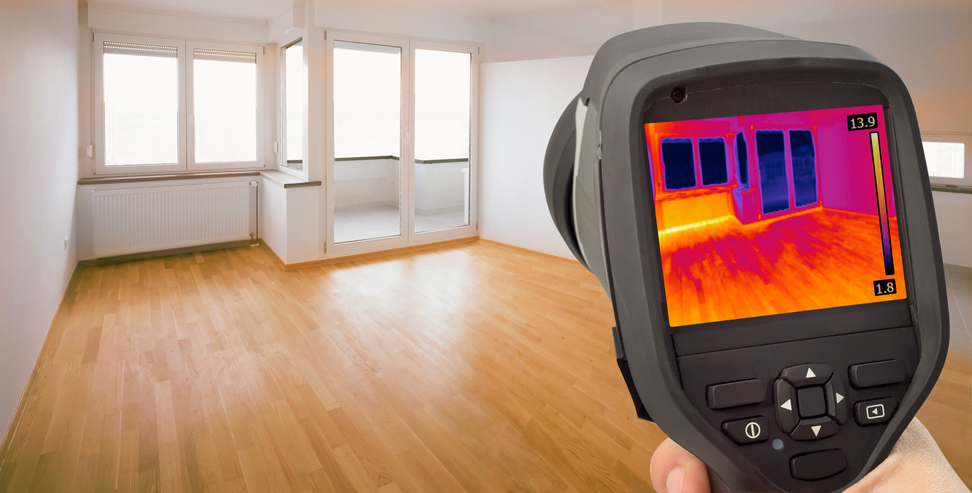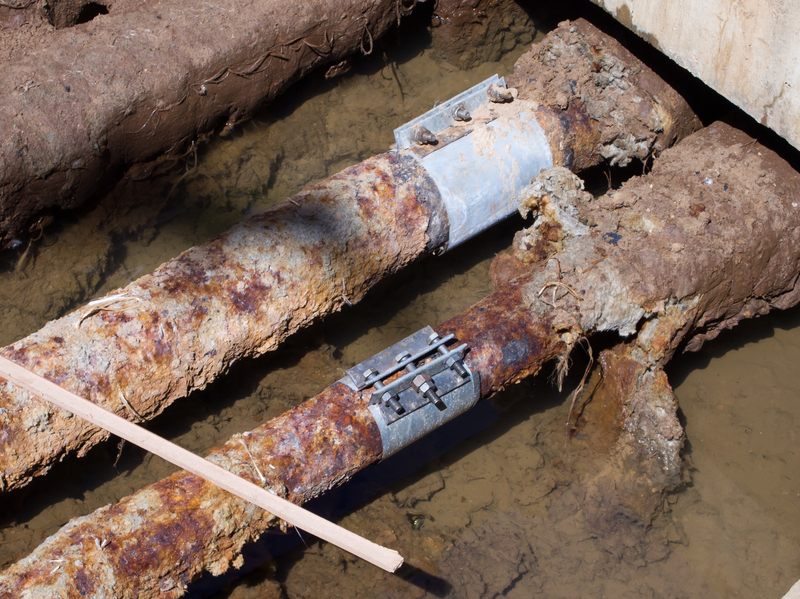Michigan Materials and Ethics 30 PDH Discount Package 2
Courses in this Package
Basement Insulation Basics (T03-006)
Coating Application and Inspection (T03-001)
Corrosion: Overview (H04-001)
Lubricants and Hydraulic Fluids - Overview (T04-008)
Lubricants and Hydraulic Fluids - Types (T10-001)
Structural Insulated Panels (SIPs) Used in Residential Wall Systems (T04-007)
Ethics in Professional Practice (LE2-007)

This online engineering PDH course describes the good practices for insulating basements in new and existing homes.
There are many considerations to account for when making decisions about insulation. Costs, codes, energy efficiency, pest control, moisture management; the list goes on. Coupled with the large variety of insulation options including mineral fiber, mineral wool, foam boards, foam sprays, polyisocyanurate, etc., it is important to be aware of what options best suit a project’s particular conditions.
Codes are also constantly changing. While it is beyond the scope of this course to provide a comprehensive view of all basement insulation codes, it does discuss many common codes relevant to basement insulation projects, as well as changes to codes in recent years.
This 3 PDH online course is applicable to engineers, energy professionals and construction personnel who are interested in gaining a better understanding of basement insulation applications.
This PE continuing education course is intended to provide you with the following specific knowledge and skills:
- Understanding what considerations should be taken into account when looking at basement insulation options
- Familiarizing with the variety of insulation options
- Understanding the problems associated with the choice of insulation
- Familiarizing with codes which must be met for projects involving basement insulation
Upon successful completion of the quiz, print your Certificate of Completion instantly. (Note: if you are paying by check or money order, you will be able to print it after we receive your payment.) For your convenience, we will also email it to you. Please note that you can log in to your account at any time to access and print your Certificate of Completion.

This online engineering PDH course presents the technologies, techniques, advantages and limitations, equipment, typical coating types involved, and safety considerations for each type of application method.
The choice of an application method depends on the type of coating to be applied, the type and size of surface to be coated, and governing environmental regulations. There are various methods of coating application, including brush application, roller application, conventional spray, high volume-low pressure spray, airless spray, plural component spray, and electrostatic spray.
Approximately 85 percent of all premature coating failures are a result of poor surface preparation, inadequate mixing, thinning, and/or poor coating application. Onsite quality control inspection during surface preparation and coating application procedures can help prevent failures of these types. Proper inspection techniques must be combined with knowledgeable instrument use, good common sense, and thorough documentation of work activities and inspection checkpoints to help ensure specification compliance. The amount of inspection and the specific inspection checkpoints will vary with the type and size of the coating project. This course presents eleven quality control inspection procedures as follows:
- Pre-surface preparation inspection
- Ambient conditions
- Compressed air cleanliness
- Surface profile
- Surface cleanliness
- Paint storage, mixing, and thinning procedures
- Application techniques
- Wet and dry coating thickness
- Pinhole detection
- Adhesion
- Cure
This 3 PDH online course is applicable to engineers, design and construction personnel, and other technical professionals who are interested in gaining a better understanding of coating application and inspection.
This PE continuing education course is intended to provide you with the following specific knowledge and skills:
- Methods of coating application
- Documentation of coating applications
- Pre-surface preparation inspection
- Measurement of ambient conditions
- Assessment of compressed air cleanliness
- Measurement of surface profile
- Evaluation of surface cleanliness
- Paint storage, mixing, and thinning
- Measurement of wet coating thickness
- Nondestructive measurement of dry coating thickness
- Destructive measurement of dry coating thickness
- Cleanliness and time (cure) between coats
- Holiday/pinhole detection
- Adhesion testing and evaluation
In this professional engineering CEU course, you need to review Chapters 8 and 9 of the “Painting: New Construction and Maintenance” engineering manual, published by the United States Army of Corps of Engineers (USACE), Publication Number EM 1110-2-3400.
Upon successful completion of the quiz, print your Certificate of Completion instantly. (Note: if you are paying by check or money order, you will be able to print it after we receive your payment.) For your convenience, we will also email it to you. Please note that you can log in to your account at any time to access and print your Certificate of Completion.

This online engineering PDH course provides basic information on the chemical interaction taking place during the corrosion process between the environment and the corroding metal. It also describes preventive measure to minimize or control the corrosion process.
Uncontrolled corrosion can cause many serious problems. Corrosion occurs continuously, and every metal in every facility is subject to some type of corrosion. Even though corrosion cannot be eliminated, it can be controlled.
This 4 PDH online course is applicable to chemical and environmental engineers, design and construction personnel, technical staff and facility operators who are interested in gaining a better understanding of the theory of corrosion.
This PE continuing education course is intended to provide you with the following specific knowledge and skills:
- Corrosion theory
- General corrosion
- Crud and galvanic corrosion
- Specialized corrosion
In this professional engineering CEU course, you need to review Module 2, "Corrosion" of the Department of Energy Publication DOE-HDBK-1015/1-93, "Chemistry".
Upon successful completion of the quiz, print your Certificate of Completion instantly. (Note: if you are paying by check or money order, you will be able to print it after we receive your payment.) For your convenience, we will also email it to you. Please note that you can log in to your account at any time to access and print your Certificate of Completion.

This online engineering PDH course describes the basic principles, characteristics, properties, and applications of different types of lubricating oils.
This course is intended to be a practical guide to lubrication with enough technical detail to allow personnel to recognize and easily discern differences in performance properties specified in manufacturers' product literature so that the proper lubricant for a particular application is selected.
This 4 PDH online course is applicable to engineers, design and construction personnel, and other technical professionals who are interested in gaining a better understanding of lubricants.
This PE continuing education course is intended to provide you with the following specific knowledge and skills:
- Understanding the definition of friction and mechanisms of wear
- Understanding the basic principles of lubrication
- Learning about the different types and characteristics of lubricants
- Familiarizing with the applications of lubricants
- Learning about the basics of the lubrication oil and the production methods
In this professional engineering CEU course, you need to review Chapters 2 through 4 of the "Lubricants and Hydraulic Fluids" engineering manual, published by the United States Army of Corps of Engineers (USACE), Publication Number EM 1110-2-1424, dated January 29, 2016.
Upon successful completion of the quiz, print your Certificate of Completion instantly. (Note: if you are paying by check or money order, you will be able to print it after we receive your payment.) For your convenience, we will also email it to you. Please note that you can log in to your account at any time to access and print your Certificate of Completion.

This online engineering PDH course describes the basic properties of turbine oils, hydraulic fluids, grease, solid lubricants as well as self-lubricated materials, and environmentally acceptable lubricants.
This course is intended to be a practical guide to lubrication and hydraulic fluids with enough technical detail to allow personnel to recognize and easily discern differences in performance properties specified in manufacturers' product literature so that the proper lubricant for a particular application is selected. In addition, this course discusses the considerations required to adequately maintain the integrity of the lubricants and ensure their effective performance.
This 10 PDH online course is applicable to engineers, design and construction personnel, and other technical professionals who are interested in gaining a better understanding of lubricants and hydraulic fluids.
This PE continuing education course is intended to provide you with the following specific knowledge and skills:
- Familiarizing with the basic properties and applications of turbine oils
- Understanding the purpose, physical characteristics, quality requirements, operating factors, and types of hydraulic fluids
- Familiarizing with the function, characteristics, applications, and types of grease
- Learning the basics of solid lubricants and self-lubricated materials as well as their types, characteristics, application, and production methods
- Familiarizing with the various types of environmentally acceptable lubricants, associated standards, use cases, and physical characteristics
Upon successful completion of the quiz, print your Certificate of Completion instantly. (Note: if you are paying by check or money order, you will be able to print it after we receive your payment.) For your convenience, we will also email it to you. Please note that you can log in to your account at any time to access and print your Certificate of Completion.

This online engineering PDH course provides prescriptive requirements for the use of structural insulated panels (SIPs) in wall systems in the construction of residential structures. These provisions include definitions, span tables, material requirements, and other related information appropriate for use by engineers, home builders, design professionals, and building code officials.
The Prescriptive Method for Structural Insulated Panels (SIPs) Used in Wall Systems in Residential Construction (Prescriptive Method) provides prescriptive requirements to facilitate the use of SIPs in wall systems for the construction of one- and two-family dwellings. By providing prescriptive provisions for the construction of typical homes with SIP systems, the need for engineering can be eliminated or reduced for most applications.
This 4 PDH online course is applicable to engineers, design professionals and construction personnel who are interested in gaining a better understanding of the design and installation considerations of structural insulated panels.
This PE continuing education course is intended to provide you with the following specific knowledge and skills:
- Familiarizing with the SIP materials, sizes and shapes
- Understanding the SIP foundation, wall and header requirements
- Understanding SIP connection details
- Understanding the utility requirements associated with SIP wall systems
- Understanding the thermal guidelines associated with SIP wall systems
Upon successful completion of the quiz, print your Certificate of Completion instantly. (Note: if you are paying by check or money order, you will be able to print it after we receive your payment.) For your convenience, we will also email it to you. Please note that you can log in to your account at any time to access and print your Certificate of Completion.

In this online engineering PDH course, background on the philosophical models that guide ethical behavior is discussed and then applied to specific situations in engineering codes of ethics. This course is based on the American Society of Mechanical Engineers Professional Practice Curriculum, Volume 8, Section: Engineering Ethics.
Many engineering organizations have drafted codes of ethics to which their members are required to commit. Generally, these codes are quite similar and are based on a few fundamental principles which provide guidance to professional engineers in common situations. Nevertheless, there are many difficult or ambiguous situations in which the best ethical solution is difficult to determine.
This 2 PDH online course is intended primarily for engineers seeking to learn ethical principles and how to apply them to their professional practice.
This PE continuing education course is intended to provide you with the following specific knowledge and skills:
-
Determining ethical behavior using several philosophical models
-
Evaluating a practical situation in terms of a professional code of ethics
-
Identifying situations that represent conflicts of interest and formulate a proper response
-
Applying the standards of professional ethics in technical communication
-
Recognizing environmental impacts of engineering work
-
Considering principles of sustainable development in the performance of professional duties
In this professional engineering CEU course, you need to review "Ethics in Professional Practice" published by the American Society of Mechanical Engineers (ASME). (This course document is reproduced by permission of the ASME (www.asme.org). You may also download from or view this course document on the ASME's website by clicking on Ethics in Professional Practice).
Once you complete your course review, you need to take a multiple-choice quiz consisting of fifteen (15) questions to earn 2 PDH credit. The quiz will be based on this ASME publication.
Upon successful completion of the quiz, print your Certificate of Completion instantly. (Note: if you are paying by check or money order, you will be able to print it after we receive your payment.) For your convenience, we will also email it to you. Please note that you can log in to your account at any time to access and print your Certificate of Completion.